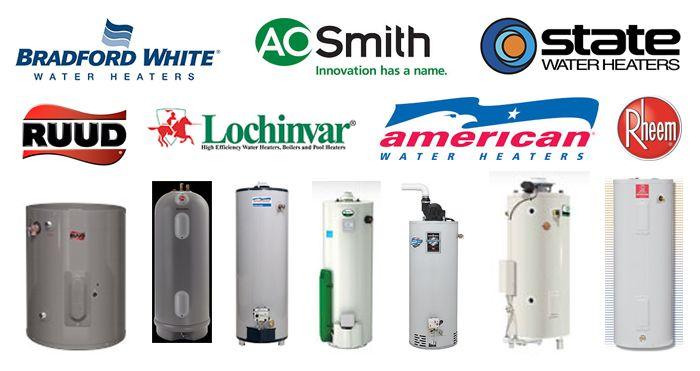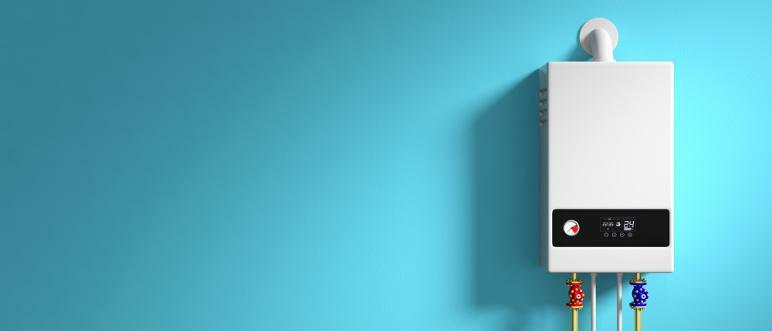What to Consider When Buying a Water Heater
Waking up on a cold winter morning to a cold shower is a fate that few of us can endure.
Nonetheless, this is exactly what awaits us when the storage water heater in our home breaks down at the end of its lifecycle.
If this happens to you, you will probably need to take immediate action to replace the heater with a new one suitable for meeting your hot water needs.
For people who have little experience with water heaters, choosing a new unit from the store can be confusing.
Getting to grips with the terminology used to describe their different specifications is important if you will get your hands on an efficient and long-lasting unit.
To help you make a smart choice, we decided to put together this informative article that details some of the points you should consider.
Table of Contents
Capacity
When we talk about a water heater’s capacity, we mean the total amount of water that it is capable of holding at any one time.
The water heater’s total capacity that you choose will depend on the number of people living in the house.
For a single person or a couple, you will only need a relatively small tank capacity to supply the house’s hot water needs.
The opposite applies if a family comprising four or more members lives together under one roof – your system will need a larger capacity if it will provide enough hot water for showers and wash needs.
Note that larger capacities are needed if you live in a colder part of the country.
This is because larger amounts of water conserve heat for much longer than small amounts.
In this way, a larger tank will require less heating, saving you money on energy bills.

Type of Heater
A key choice to make when choosing a new water heater is the type of appliance that you want.
You will need to decide whether you want a standard storage heater, a tankless heater, or a heat pump water heater.
Standard – A standard storage heater is the most common type of water heater for domestic use. It uses a heater and a storage tank to provide an instant source of hot water.
The heater in the tank transfers heat from an element to the water inside.
The tank is connected to a pipe that provides cool water and an outlet pipe through which heated water is circulated around the house to the faucets and radiators.
Tankless –Sometimes known as an “on-demand” system, a tankless system does not use a tank. Instead, it uses super-heated coils to heat water as and when it is needed.
If you buy one which is large enough to supply the hot water demands of the inhabitants of a building, there should be no problems.
However, these systems tend to use slightly more energy due to the rapid-heating action required to run them.
Heat Pump – A heat pump system is a hybrid of the first two systems.
It has a tank like a conventional system. However, instead of heating the water using electricity or gas, a heat pump system uses the heat in the air and the ground to heat water.
This offers homeowners savings on electricity of up to 60 percent over other types of water heaters.
If you are looking for more environmentally-friendly options than the three systems mentioned above, you may want to investigate the possibility of investing in a solar water heating system or a condensing water heater.
Related Reading: Tank vs Tankless Water Heater: The Great Water Heater Debate
Tank and Heating Element Quality
If you live in an area with hard water, you should pay special attention to the quality of the tank and heating element on any water heater you buy.
Hard water is water that contains high levels of minerals.
When both the tank and the element come into contact with water, the heat can expedite a chemical reaction, which results in the production of limescale.
Cheaper water heaters are less resistant to corrosion resulting from a build-up of calcium and magnesium.
This will reduce heating effectiveness and the lifespan of the unit.
People who live in hard water areas should take special care to look for units built to be corrosion-resistant.
Energy Efficiency
A key concern when buying a new water heater is its potential impact on domestic energy bills.
The good news is that newer models use the latest energy-saving technology and are generally much more energy-efficient than their older counterparts.
Overall, energy consumption depends on several factors.
First, the size of the heater will determine how much energy is needed to heat water.
As a general rule, the larger the tank, the more energy will be required to heat water, although this is offset somewhat by water’s heat-retaining properties.
Second, you will need to make allowances if you live in a cold climate as the electricity or gas required to heat the water to the desired temperature will be greater.
People who live in colder climates may want to choose a heater with an adjustable temperature setting to get them through harsh winters.
Finally, you should consider the amount of heat lost when the water is hot and the heater has been switched off.
The standing loss will be determined to a large extent by the quality of the tank’s insulation.
If you have a low-quality tank, you will find that your energy consumption will be high as more heating will be required.
Finally!
Buying a new water heater is often a pressing concern, especially if your existing one has broken down. Nonetheless, the process of choosing should not be rushed.
Getting the right unit for your circumstances is vital if you want it to adequately supply enough hot water for your household and live a long and productive life.
Related Reading: DIY Guide to 15 Common Plumbing Problems & Solutions

